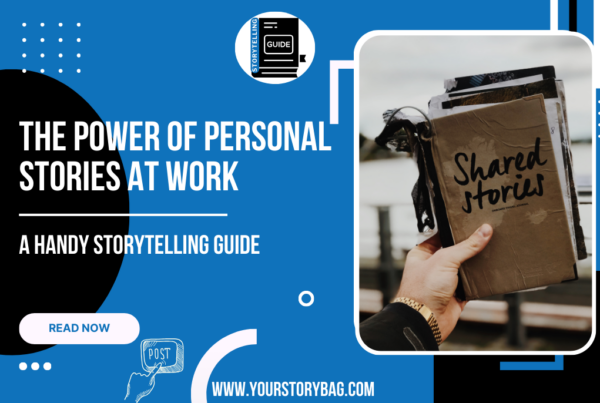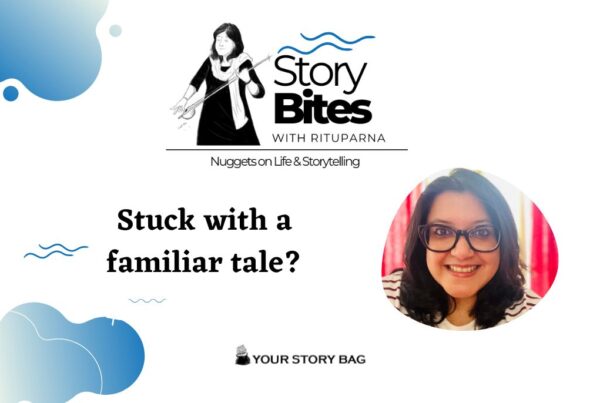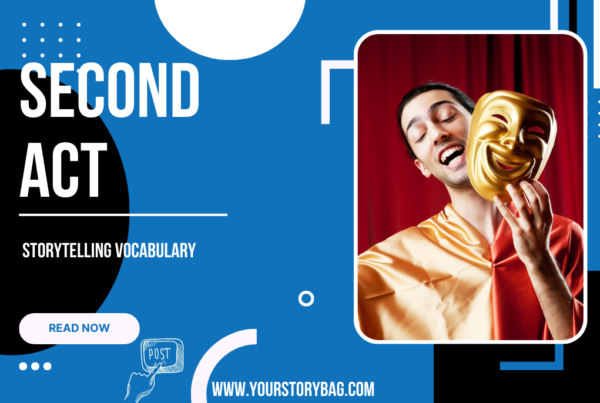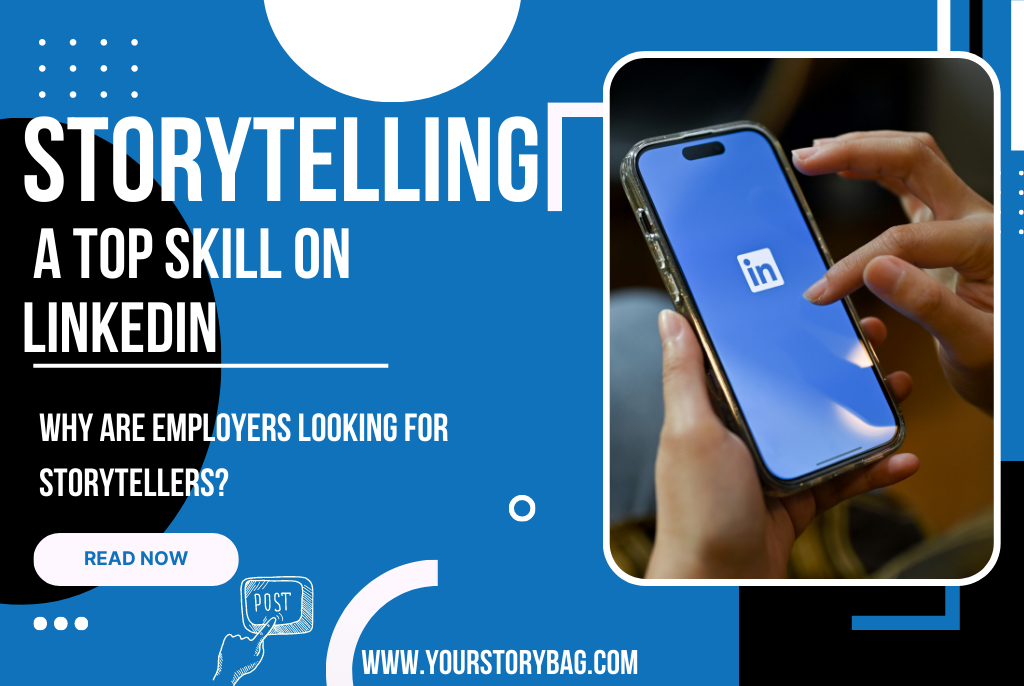

My copy of Jonathan Livingston Seagull by Richard Bach
Nearly 40 years back, my father and his school friends set off to build a company in Bihar. By the time I gained an understanding of their work, I was just about 10. Every once in a while I would see my father bring home a file with resumes and applications from job seekers. Back in the day, my father & his friends figured out a unique way to hire ‘Graduate Trainees’. Once the resumes were shortlisted, they would post the applicants a copy of “Jonathan Livingston Seagull.” Their application process would involve a mandatory review of the allegorical fable. During the pre-internet days, if a GT had to respond to a story book, he was expected to and write his honest review. No plagiarism. No short cuts. No borrowed insights. Whatever be the perspective, limited, original or unique, their candidature would hinge on their book reviews!
 “Why did you do that, Baba?” I asked my father.
“Why did you do that, Baba?” I asked my father.
“We want to see if the candidates identify themselves as the character of Jonathan Livingston Seagull. It was important for a young startup like us,” was his simple response.
I learnt the BEST Storytelling lessons from my father.
In 2018, I spoke about Storytelling and how it will be the Strongest Currency in the World. 4 years into being a Storytelling Company, this was a prediction that we made for the world.
Fast forward to today, 5 years later, I can strongly say that Storytelling IS the strongest currency in the world!
Storytelling is a currency that most business, organisations are increasingly using. And they are looking for merchants, traders and leaders who excel in handling this currency!
Since the past 3-months, I have been analysing all jobs tagged as “Storytelling” on LinkedIn.
Everyday, we see new roles opening up, all looking for a “Storyteller”.
From Business, to Design, Communications, Social Impact, Copywriting, Data Analytics, Leadership, Business Development, Sales and Teaching, the ONE SKILL that they all see in their future employees is Storytelling.
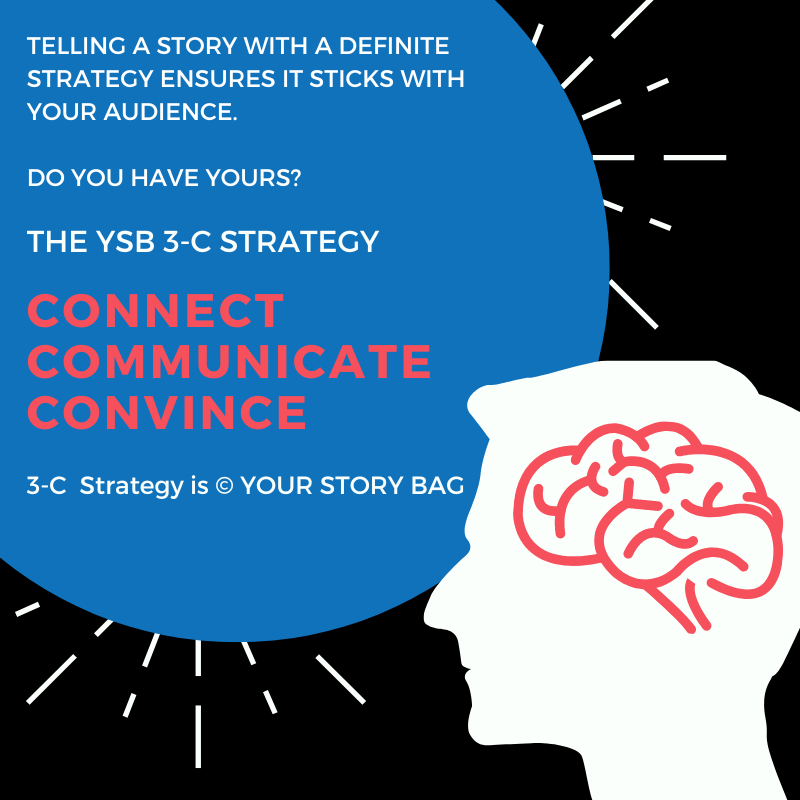
YSB 3-C Strategy
It’s exciting for a Storytelling organisation like Your Story Bag to see this because it’s a validation of how we look at Storyverse, the universe of human endeavour connected through stories!
Here are our reasons:
- The world is expanding and branching out with unique and distinct forms of Storytelling. While the skill to Connect with a listener & craft a narrative to Communicate a point and Convince the listener to take action is the same, what is unique is the tools & strategy that the teller uses. No audience is the same, there is no universal way that ‘listeners’ respond to you, and there in NO ONE WAY to tell a story!
- Storytelling is a skill that is applicable to ALL levels in the organisation. From the newbie, to the mid-senior, to Director level, everyone is a potential Storyteller in the organisation. A story fits into every piece of interaction, from a job interview, to networking, to presentation, sales pitch, to crisis management, leadership, brand building and more. No matter where you stand in the org structure, you will need a story.
- While organisations are looking for storytelling skills in their future employees, they are also investing in building these skills in their present employees. In the past ONE year, we have worked with Non-Profits, E-Commerce, Communications and Schools in building storytelling competencies in their teams and we know this space is only growing.
In the past ten years that we have been in the business of stories, we have seen the conversation go from “What’s the ROI on Storytelling?” to “Storytelling Skills are a good to have!” to being “We need Storytelling! Now!”
Let’s look at some of the job openings that require their future employees to tell stories and try and understand WHY and HOW is this skill important for this job.
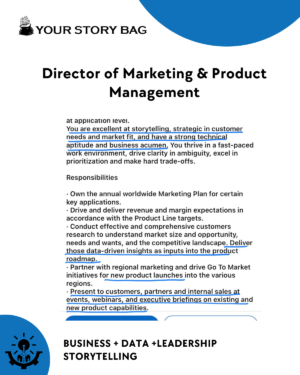 Business, Data, and Leadership Storytelling
Business, Data, and Leadership Storytelling
At Your Story Bag, we look at three kinds of Stories that Companies tell: Business Stories, Organisational Stories & Corporate Stories. Each of these stories help the company ‘do’, ‘enable’ and ‘impact’ business strategically. These stories are distinguished by WHO are they being told to (B2E, B2C, B2B, E2E, B2G) and WHY (convey strategy, product benefits, build the brand, convey thought leadership, impact policy, etc) and WHERE (internal meetings, internal comms, sales calls, town hall, leadership summits, conferences, media, etc). Data Storytelling is the essential skill of presenting data that speaks to the audience in tangible ways. Presenting the right data to make decisions, communicate changes and showcase implications thereof are all part of it. While data is important, equally critical is ‘Data-driven Storytelling’, or the ability to convey the BIG picture of how different sets of data connect to convey a narrative. This is the BIG PICTURE that makes Storytelling for Leadership a valuable skill. The higher you go in the ranks of an organisation, your ability to Lead with a Story will be greatly useful.
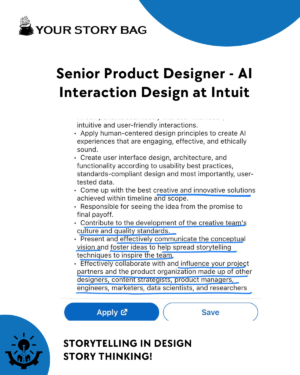 Storytelling in Design and Copywriting
Storytelling in Design and Copywriting
Some of the best & worst examples of Storytelling come from advertising. Ads & movies are popular examples of Storytelling for us at Your Story Bag. Since they build a common vocabulary for many of our learners across business & consulting, we have a steady set of ads that we show in our workshops. In fact to teach Copywriting, we show campaigns designed by non-profits, social enterprises to tap into user personas and build empathy. The elements of Empathy and Futuristic Storytelling is based on problems that designers can solve in the future. Can a product or a design solve a customer’s problem? Do you even care for the customer’s problem in the first place? And if you have a design, can you SELL it with the right story? Designers and copywriters who can tell a story effectively are highly sought after by employers.
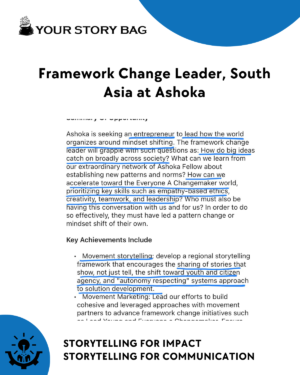 Storytelling in Social Sector
Storytelling in Social Sector
In the social sector, storytelling is used to create awareness, inspire action, and drive change. Non-profit organizations use storytelling to communicate their mission and impact, connect with donors and volunteers, and raise awareness about social issues. Stories of Impact and Change are important. Storytelling is a powerful tool for creating empathy and motivating people to take action. It is a skill that employers in the social sector value highly and need. As an organisation, we have worked with social enterprises of various kinds. From livelihoods, to entrepreneurship, children’s rights, to nutrition for children battling cancer, environment, education and CSR. This is a sector that is increasingly using Storytelling strategically.
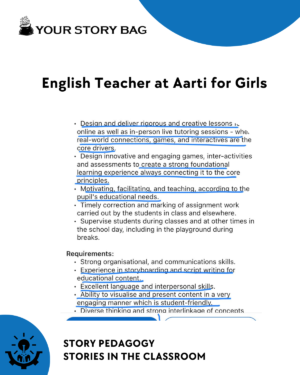 Storytelling for Teachers
Storytelling for Teachers
We have been working teachers and educators for the last 9 years. When we started talking about Story as Pedagogy, there were very few takers. Most of the work was limited to the early years, with very little focus, or interest in middle and senior school. NEP 2020 changed that significantly for us. We now have schools, teacher training bodies and many educators actively stepping out to embrace Story Pedagogy. Stories in the Classroom is the strategic use of a story to create a Story Bridge, use a story as a Hook – Illustrator – Explainer or Tester. A Storytelling Teacher is a special kind of an educator who has a story for every lesson, whether to teach or test a child. We are now on a mission to Spark Classrooms, The Storied Way!
We spoke to some folks in our network, about whether Storytelling is a vital skill in their industry. The quotes are still coming in and we will update this section as we get them.
Meanwhile if you have an insight to add to this post, do share it in the comments below or write to us at contact@yourstorybag.com
Aniruddha Samanta, Commercial Director, Global Data Plc
Storytellers are good listeners. The popular misconception is that Sales people need to be talkers. What we need more today are Sales people who are good listeners. In fact, that’s the skill that we want business development & sales people to learn first. If they learn to listen to the client talk, they will be able to pick up the needs and gaps in their business. If this is done, then the next task is to stitch the narrative of how your product / service will solve their problems or fill the gaps they have.
Suman Kher, Soft Skills Trainer & Coach, Soft Skills Studio
Story telling is so important even as a Corp employee or a senior executive that I’m learning the skill myself to help my clients do it better. Beyond a point, an emotional connect is important. To inspire and persuade an organisation to work towards a goal isn’t just about commanding people. It has to make sense to everyone. The buy in is needed. And stories can do that really well.
Riddhi Sharma, Founder, Thought in a Dot
I truly believe in it, it is not just a ‘fad’ or a ‘trend’, the power of story telling has survived and surpassed barriers of time space and physicality. We specialise in brand and leadership storytelling. Hence we need to build compelling narratives for our leaders/ brands to stand out from the clutter.
We need to make sure we help our clients identify , discover, build and distribute the stories that they have but are hidden in the daily lives of ours.
Piyuesh Modi, Business Sketch Note Trainer, Curious Piyuesh
Storytelling brings the invisible to life.
Yes Storytelling is a much needed skill (esp in my job) as I work in the marketing domain. Be it selling an idea internally or externally, a story makes it easier- a structure to what happened in the past, what is the current scene and what is the expectation in future is a story that many of us use to make things work.
Those who lack the skill, find it more difficult to convey opinions and thoughts and can feel less confident about their own ideas.
Leaders are also noticing that team members need to be up skilled with this skill set even though they have other work related skills and are open to signing up teams for paid courses on the same.
Rahul Mandal, Directors, Creative Strategy and Content, Kreativ Street
In fact, for the copywriters’ assignment, we also have a question asking them to narrate a significant event from their life in written format in a compelling and captive way.
This helps show not only how well they can write, but how they can communicate their own stories, key moments of joy, pain, anguish, fear, embarrassment, etc. in a way that the reader sees it happen in front of their eyes as they read.
Storytelling is key to pretty much every aspect of advertising and communication, and the ones who know how to use storytelling to move emotions, move perceptions, move products off the shelves will win… time and again.
Jermina Menon, Founder & Chief Strategy Officer, Knowetic
As a marketer story telling is but an essential skill. In my last few years work as an independent consultant & having worked mid sized brands & some amazing founders, the one thing I realised is that ‘Everyone has story that needs to be told’.
I say to my enterprise cohort when i train in data engineering that – ” we are all time travellers telling or making our stories”. Well that sums up how much i value story, one thing i like to call out is that it is important to be genuine while story telling and make up stuff like fiction or try to be what we are not. In the digital age trust is key as well.
In January 2024, Your Story Bag will turn 10.
As a run-up to our 10th year milestone we will be sharing backstories, behind-the-scenes and untold stories from our journey so far. Follow the hashtag #YSBAt10 to follow our stories.
We will also be offering complimentary Discovery Calls, Program Discounts and Custom Workshops for each of the above Storytelling Skills.
Stay tuned and subscribe to our Newsletters.
Happy Storytelling!

